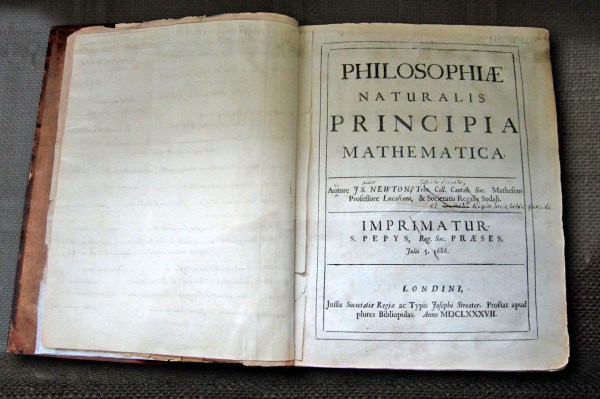For hundreds of years, we have been told what Newton’s First Law of Motion supposedly says, but recently a paper published in Philosophy of Science (preprint) by [Daniel Hoek] argues that it is based on a mistranslation of the original Latin text. As noted by [Stephanie Pappas] in Scientific American, this would seem to be a rather academic matter as Newton’s Laws of Motion have been superseded by General Relativity and other theories developed over the intervening centuries. Yet even today Newton’s theories are highly relevant, as they provide very accessible approximations for predicting phenomena on Earth.
Similarly, we owe it to scientific and historical accuracy to address such matters, all of which seem to come down to an awkward translation of Isaac Newton’s original Latin text in the 1726 third edition to English by Andrew Motte in 1729. This English translation is what ended up defining for countless generations what Newton’s Laws of Motion said, along with the other chapters in his Philosophiæ Naturalis Principia Mathematica.
Continue reading “Mistranslation Of Newton’s First Law Discovered After Nearly 300 Years”












